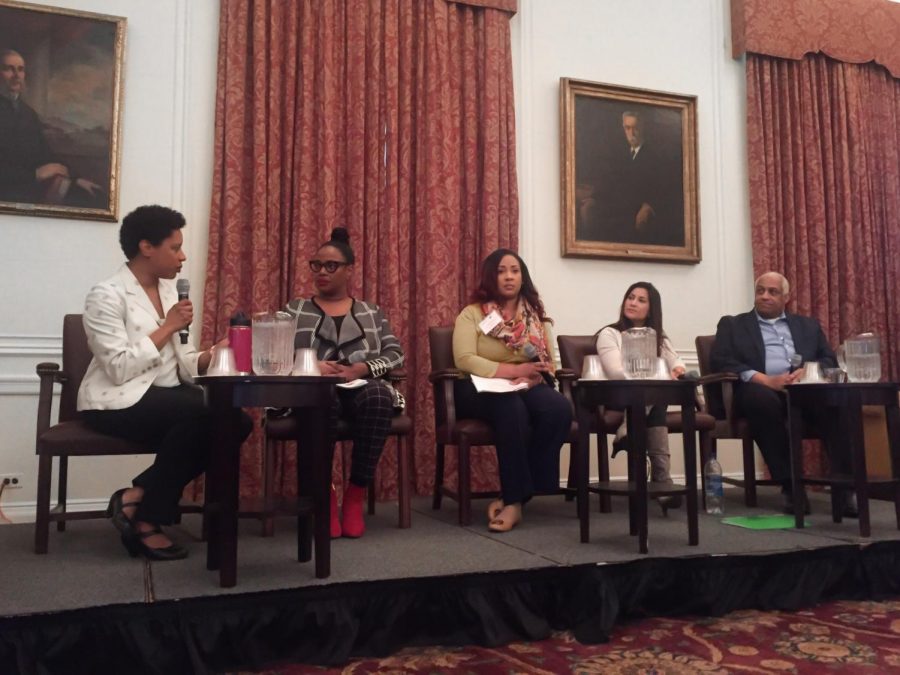Law Panels Shed Light on Need for Diversity in Environmentalism
Left to right: Whitney Tome, Myra Mathis, Ebony Martin, Pallavi Phartiyal and Anthony Tansimore. The Institute for Policy Integrity at NYU School of Law hosted an event in which panelists discussed how the environmental movement can encourage diversity.
February 13, 2018
The Institute for Policy Integrity at NYU’s School of Law hosted a two-part panel event, titled “Building Power: Diversifying The Environmental Movement – People & Policy,” on the morning of Feb. 6 which discussed how the environmental movement can encourage diversity.
The event was put on by Green 2.0, an environmental initiative that works to increase racial diversity within environmental non-governmental organizations, foundations and governmental agencies. Robert Raben, the founder of Green 2.0, opened the event with his keynote speech.
“We are devoted to shifting power to women and people of color,” Raben said to the audience of over 200 professionals involved in the environmental movement.
The first panel, titled “The Environmental Movement’s Real Pipeline Problem,” included speakers involved in job recruitment for various environmental nonprofit organizations. The second panel, titled “Diversity & Inclusion: Power Building for the Environmental Movement” discussed how organizations can maintain diversity initiatives and encourage a culture of inclusion and equity.
At the start of the first panel, Pallavi Phartiyal, the deputy executive director for the Rainforest Action Network, characterized the state of environmental organizations today.
“We have a lot of internal work to do,” Phartiyal said. “We are … white funded, white founded, white led. Unless we have a recognition of that history, it’s rather difficult to move away from it to imagine the future that we all want.”
The panel discussions focused largely on how organizations can encourage recruiters to hire diverse applicants for its own sake and not for the sake of fulfilling seemingly arbitrary diversity requirements.
Myra T. Mathis, the executive search consultant and practice leader at Nonprofit HR, a for-profit human resources consulting firm that works with the nonprofit sector to encourage diversity hiring, suggested that seeing a diverse staff will encourage trust among those the organization serves.
“Imagine the thinking of a community of people where an organization comes in and they profess to be there to help,” Mathis said. “But no one that has come in looks anything like them. How are you going to get these people to believe that you even understand how they’re thinking?”
Anthony Tansimore, founder and managing director of Blueridge Advisors, a company that offers executive searches, among other services, and emphasizes the importance of diversity, described a challenge that he often runs into with executive search teams.
“Often boards are starstruck,” Tansimore said. “They want the brilliant CEO who has the great pedigree, who can bring attention to their organization. And I’ve got to get them past that.”
Referencing a question that was asked by an audience member about whether inclusion and equity was “mission-critical” to environmental organizations, Phartiyal insisted that diversity initiatives were integral to the movement.
“It’s not an optional approach, it’s a required approach,” Phartiyal said.
Email Sunanda Gaskins at [email protected].



























































































































































